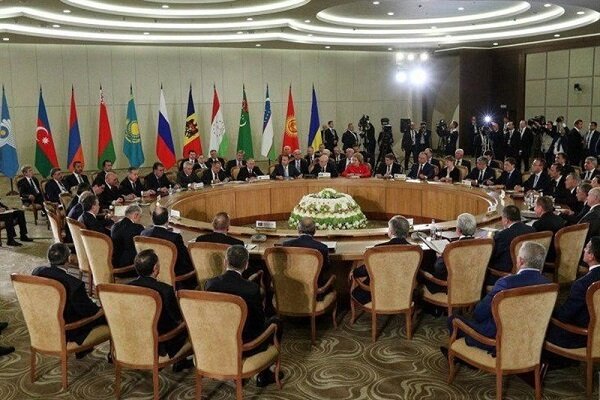To materialize economic integration amid Euro Asian region that started from scratches of preliminary plan on economic cooperation among Euro Asian countries in 1994 to establish Eurasian Economic Union (EAEU) in 2015 various measures such as establishment of Eurasian Economic Community (EAEC) in order to expand and coordinate economic activities and also establishment of Customs Union and common economic atmosphere among regional countries have taken place to facilitate economic relations. Eurasian Economic Union is an economic bloc containing five countries of Armenia, Russia, Kazakhstan, Kyrgyzstan and Belarus with about 183 million active populations, $1.9 trillion GDP, first place in oil production, second place in gas production and fourth place in electricity generation which is one of the most lucrative investment markets of the world.
On the other hand, due to Iran’s profound qualitative bounds with Eurasian countries some of which used to be within the civilization field of ancient Iran and enjoy having common traditions and rituals, economic and trade cooperation between Iran and these countries can be very attractive. After the collapse of the former Soviet Union, Iran managed to establish good relations with majority of the Central Asian and Caucasus republics, but as time lapsed, the relations were affected different interventionist variants and thus reduced sharply.
The Zionist regime played a role in Southern Caucasus and Saudi Arabia, Turkey and China played the same role in the Central Asia and thus the attention and looking of the northern neighbors were diverted gradually from Iran to these players to the extent that with countries like Tajikistan and Turkmenistan in Central Asia where Iran has the most ritual and cultural links, the level and the volume of relations within the past ten years have reduced to one fifth or even less. Likewise, the Republic of Azerbaijan in Southern Caucasus having the most ethnical links with us has now become an arena for the Zionist regime.
The policy of “Neighbors First” has become a priority in trade and foreign policy since the thirteenth government (President Raeissi) has taken office.
In addition to bilateral relations, regionalism as well as linking the economic interests of Northern neighbors can bring more achievements to Iran’s potentials. Admitting Iran as a permanent member of Shanghai Cooperation Organization (SCO) is a process which takes 2-3 years and it is necessary to further use the potential of Eurasian Economic Union within the framework of Preferential Trade Agreement during this period.
The economic importance of the Union is so much that immediately after it was established there were many countries that expressed their willingness to be acceded to it as a member. The trade volume of Eurasian Economic Union with other countries of the world amounts to about $ 850 billion of which $ 331 billion is for imports. Iran’s share is only $ 2.5 billion out of the total volume, of which $ 1.6 billion goes to imports and another $ 823 million is for exports.
At least 80% of Eurasia export to Iran goes to agricultural products especially grains and 68% of Iran’s export to Eurasia goes to agricultural products especially fruits and dried fruits. But one must be watch up and this opportunity should be further elaborated for merchants that in Iran’s Preferential Trade Agreement with the members of Eurasian Economic Union Iranian producers and exporters were given the opportunity to export more than 500 items of their goods with either zero percent tariff or nearly zero percent tariff to five main member countries of Russia, Armenia, Belarus, Kazakhstan and Kyrgyzstan. On the other hand, the implementation of Preferential Trade Agreement with Eurasian Economic Union paved the ground even further than ever in the past for initial steps of Free Trade Agreement with these countries.
In addition to trade in goods, due to high geopolitical and geostrategic potentials, Iran must be prepared and active to cooperate with Eurasian countries in service sector particularly in transit and tourism fields. Development of the two industries will prepare the ground to link the economy of neighbors with Iran’s geography and geopolitics. To this end, the completion of Rasht-Anzali and Zahedan-Chabahar railroads are of great importance. Eurasian landlocked countries are in dire needs to have access to the Persian Gulf and Sea of Oman. Likewise, the shortest, the most cost effective and the most secured route for India to have access to Central Asia and Caucasus and then Europe is through Iran’s geography.
The existence of many caravanserais in every corner of Iran indicate that due to the very same special and exclusive geopolitical characteristics, our country has always been a good place for transit and a top option for tradesmen to do their business. The efforts must be made to keep and even upgrade the traditional and historic role. But to this end, the important issue to take note is to revise the customs and tax laws and also facilitating the customs inspection process at incoming and outgoing border posts.
Emphasis on tourism and transit will provide the opportunity to Iran to tie the economy of neighboring countries to our geopolitics and through this means, to increase considerably the costs of Iran’s sanctions for the Westerners at international relations’ scene. Today, it is Iran who shoulders the costs of sanctions alone but if the economic interests of Iran’s neighbors which are at least 15 countries at our immediate borders depend on Iran’s geography, every sanction imposed upon Iran will not be accompanied by Tehran opposition alone, instead at least 15 other countries will react promptly to such sanctions. This will be the least achievement of Iran’s attention to her geopolitical and geo-economic potentials.










0 Comments